Optimizing Your Workflow with Venture Capital Management Software

Introduction
In the fast-paced world of venture capital, leveraging the right tools can be the difference between staying ahead of the curve and falling behind. Venture Capital Management Software is designed to revolutionize the investment process, providing a comprehensive solution for tracking deal flow, managing relationships, and analyzing performance metrics. By automating routine tasks, investment teams can focus on strategic decision-making, optimizing resource allocation, and driving higher returns.
This article delves into the benefits and key features of Venture Capital Management Software, guiding firms on how to choose the right platform to enhance their operations. Additionally, it highlights the importance of real-time data, collaboration, compliance, and security in making informed decisions and maintaining a competitive edge. Explore the transformative power of these tools and discover the top software solutions that can propel your firm towards sustained success.
Benefits of Venture Capital Management Software
Venture Capital Management Software revolutionizes the investment process by offering a comprehensive solution for tracking deal flow, managing relationships, and analyzing performance metrics seamlessly. Automating routine tasks like document sharing and communication allows investment teams to dedicate more time to strategic decision-making, mirroring the efficiency gains seen in platforms like Spiff, which transformed commission management in sales. Such software provides enhanced visibility across the investment lifecycle, optimizing resource allocation and driving higher returns on investments. ‘This immediate clarity and efficiency not only enhance operations but also enable companies to make informed choices quickly, similar to how property platforms compile market information for instant value evaluation, ensuring substantial time savings and complete operational visibility.’.
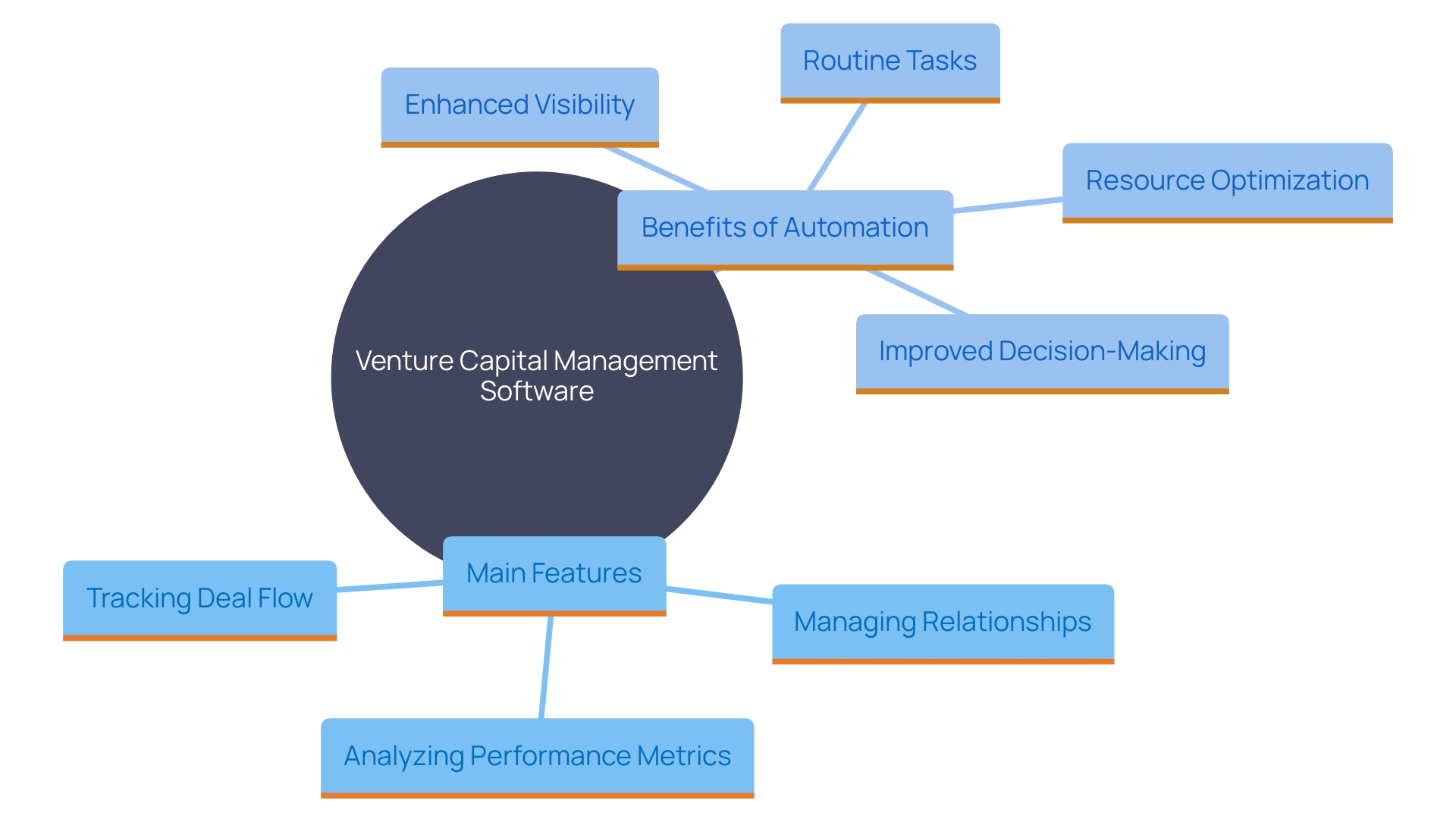
Key Features of Effective Venture Capital Management Software
An exceptional Venture Capital Management Software should encompass features like real-time data analytics, user-friendly dashboards, and robust reporting tools. ‘These functionalities enable companies to streamline their operations and make data-driven decisions efficiently.’. Integration capabilities with CRM systems and compliance tools are essential, facilitating seamless operations and ensuring regulatory adherence. Additionally, customizable workflows that adapt to a firm’s unique processes are crucial. This ensures that every opportunity is captured without unnecessary friction, allowing for a tailored approach to deal flow management.
For instance, Jeron Paul’s experience with Spiff highlights the importance of addressing specific pain points through automation. Spiff’s SaaS platform, which automates commission calculations, significantly reduces errors and saves time, demonstrating how tailored solutions can enhance satisfaction and efficiency in complex tasks.
Similarly, Guidde’s innovative use of generative AI to create, edit, and analyze video content underscores the value of user-friendly and integrative tools. Their platform has been embraced by more than 500 organizations for diverse uses, indicating the increasing demand for accessible and efficient technological solutions.
Additionally, the wider movement towards SaaS utilization, propelled by the transition to remote employment and the demand for scalable, cost-effective solutions, highlights the significance of selecting the appropriate management tool. As Marc Andreessen predicted, technology is transforming traditional sectors, and every company must adjust to succeed in the digital era.
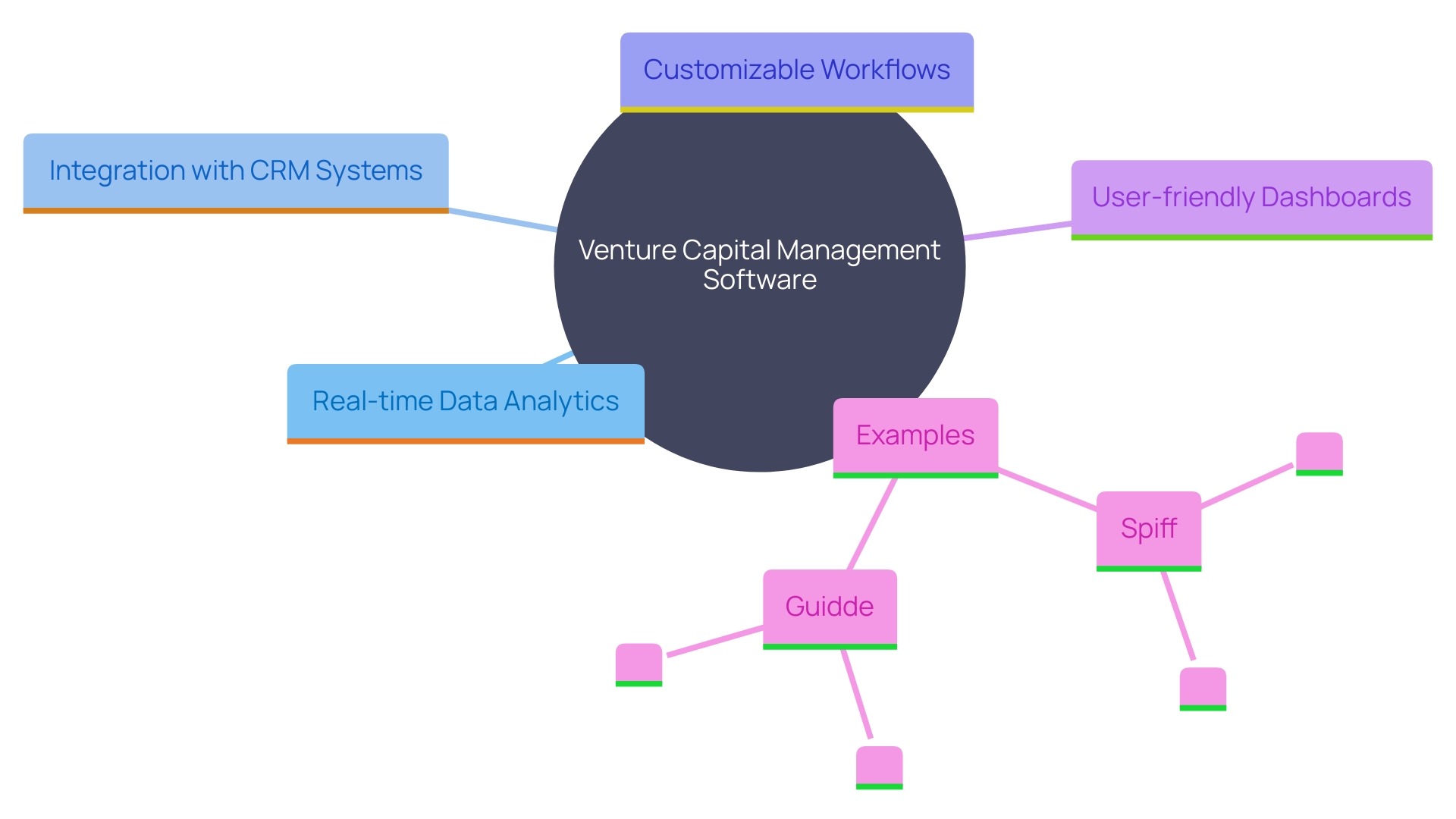
Choosing the Right Venture Capital Management Software
Selecting the right Venture Capital Management Software requires a nuanced understanding of your firm’s specific needs and strategic goals. Begin by considering crucial factors like the size and diversity of your portfolio, the complexity of your investment deals, and the workflow preferences of your team. “It’s essential to conduct thorough research, leveraging user reviews and industry reports to gauge the program’s effectiveness and market position.”. Requesting demos can provide hands-on insights into how well the application aligns with your operational objectives. Involving stakeholders early in the decision-making process is essential; it guarantees that the selected solution aligns with the collective expectations and strategic objectives of the organization. This collaborative approach can significantly enhance the adoption and long-term success of the software within your organization.
Streamlining Workflows with Automation and Project Management Tools
Automation is not merely a trend but a transformative force in venture capital operations. By leveraging advanced project management tools, firms can significantly streamline their workflows. Teams can assign tasks, set deadlines, and monitor progress with unprecedented clarity, fostering enhanced accountability and transparency. Automating repetitive tasks reduces human error, ensuring more precise management and reporting. This efficiency gain is echoed by Jeron Paul, an experienced investor and founder of Spiff, whose SaaS platform automates commission calculations, reducing errors and saving time. This approach not only optimizes internal processes but also aligns with the industry’s broader goal of leveraging technology for smarter, faster decisions.
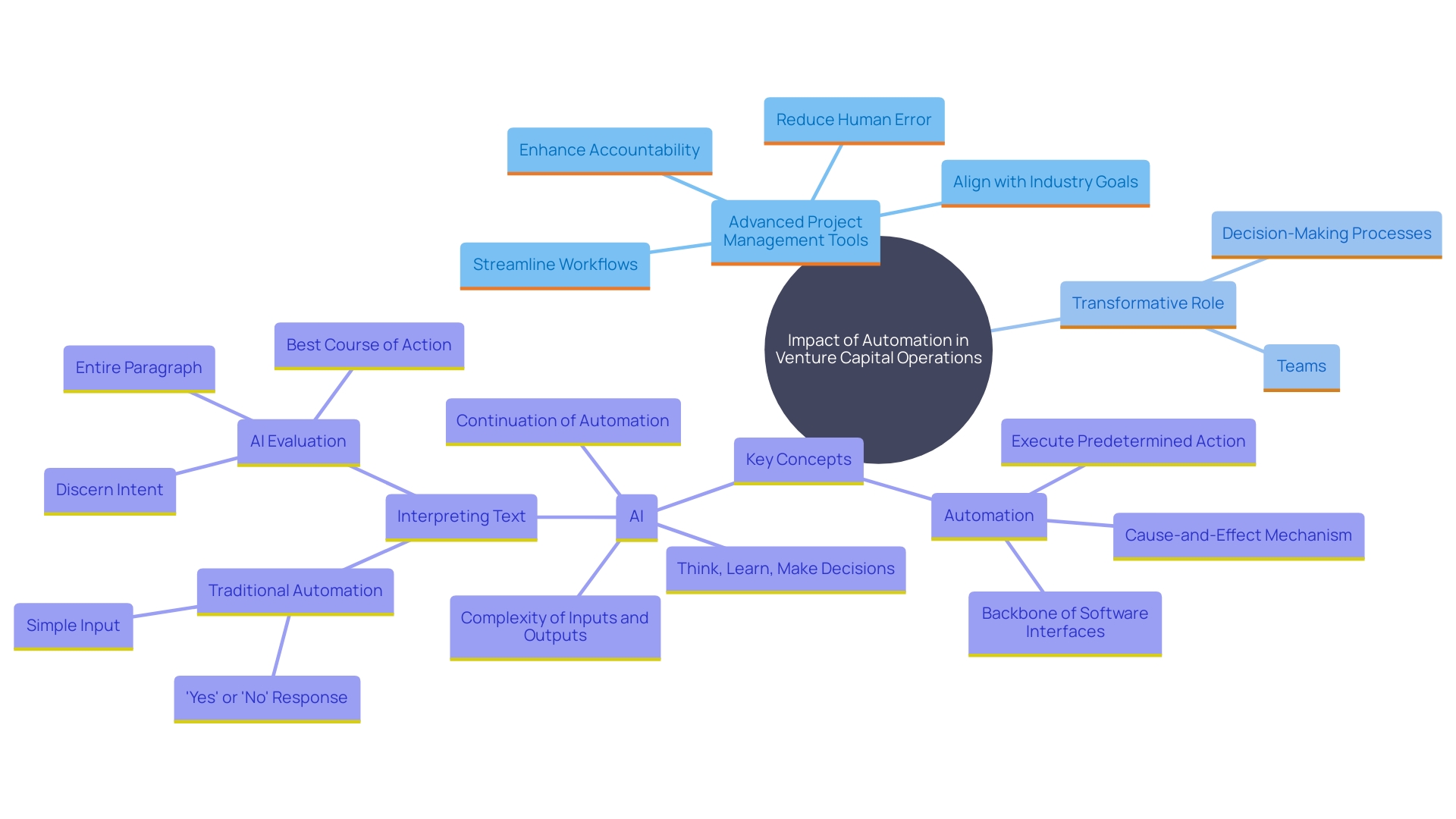
Enhancing Decision-Making with Real-Time Data and Analytics
Integrating immediate information and analytics has transformed investment decision-making. By leveraging alternative data—such as satellite imagery, social media sentiment, and credit card transactions—investment firms can gain predictive insights that traditional sources cannot provide. This kind of information enables the prediction of market shifts, comprehension of consumer behavior, and evaluation of company performance instantly.
For instance, hedge funds have been at the forefront of utilizing these innovative data sources to maintain a competitive edge. ‘The immediate analysis enables them to adapt swiftly to market changes and make informed decisions without the delays associated with traditional batch processing systems.’. As Peter Pugh-Jones, Director of Financial Services at Confluent, noted, the shift from batch to instantaneous processing has been crucial in overcoming the limitations of older systems that often took hours or days to execute.
Furthermore, the incorporation of immediate information into decision-making procedures is not solely about having access to large amounts of knowledge. It is about the ability to act on this information swiftly and accurately. With dashboards that present key performance indicators clearly, decision-makers can quickly identify issues and opportunities, facilitating timely and strategic choices. This agility is crucial in today’s fast-paced investment environment, where the ability to adjust promptly can make the difference between success and failure.
The transformative effect of immediate information is emphasized by a survey of 300 engineering organizations, which showcases the increasing transition from conventional batch processing to instantaneous systems. Organizations now process and analyze gigabytes of information per second, enriching their analytics platforms and AI models with continuous information streams. This shift is not without its challenges, but the benefits of enhanced decision-making capabilities far outweigh the hurdles.
In general, utilizing real-time information and alternative resources enables investment companies to remain ahead of market trends, enhance portfolio performance, and make strategic choices with unmatched precision and rapidity.
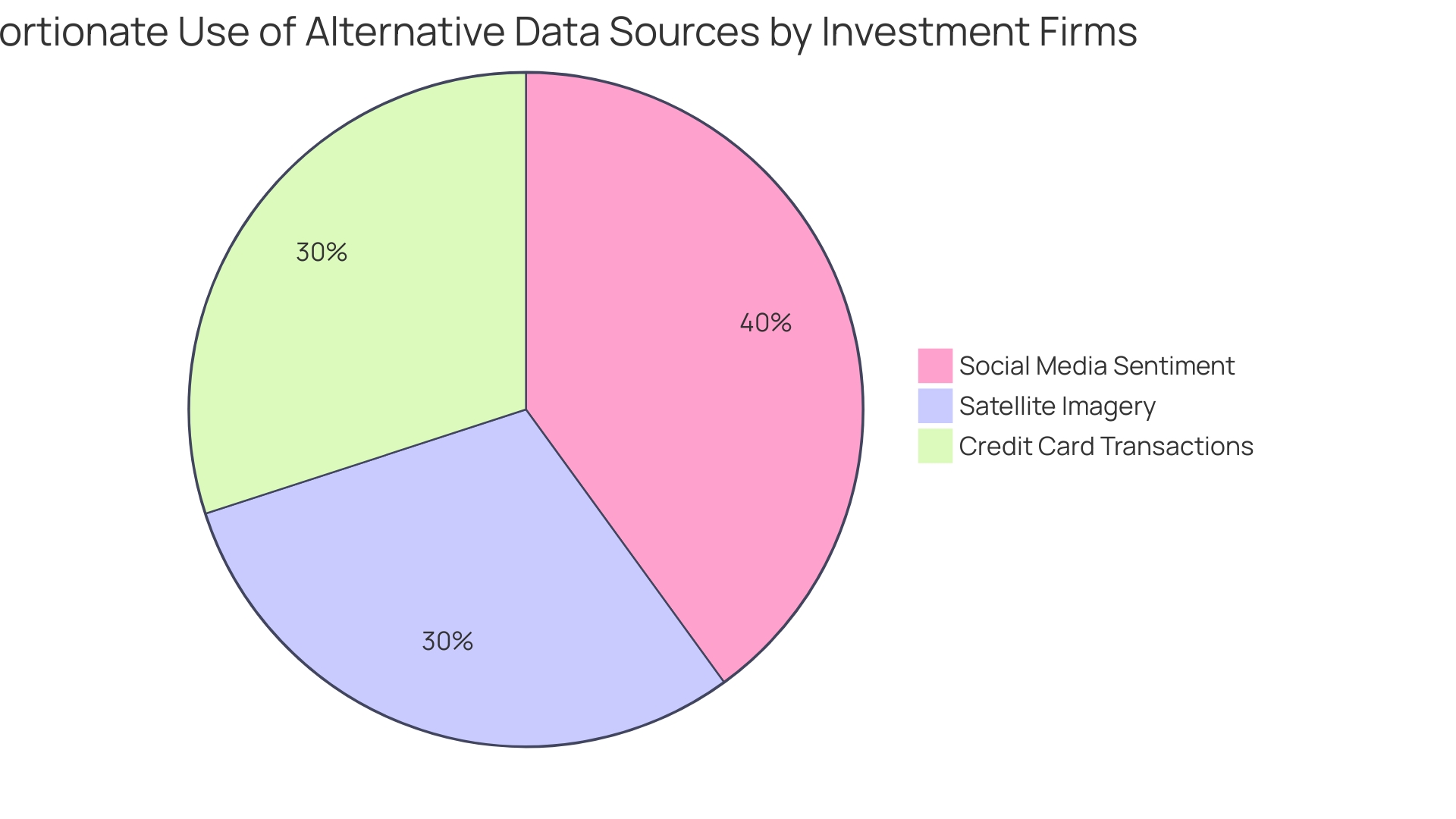
Improving Collaboration and Communication
Effective collaboration is the cornerstone of success in venture capital, where every deal involves multiple stakeholders. Venture Capital Management Software revolutionizes communication among team members and external partners through features like shared notes, discussion threads, and secure document sharing. In an industry where the market is witnessing a positive trend in investor interest, particularly in AI and climate ventures, such transparency ensures that everyone stays aligned on objectives and progress. By fostering a collaborative environment, these tools help teams navigate both high and low volatility markets, ensuring seamless alignment and efficient growth.
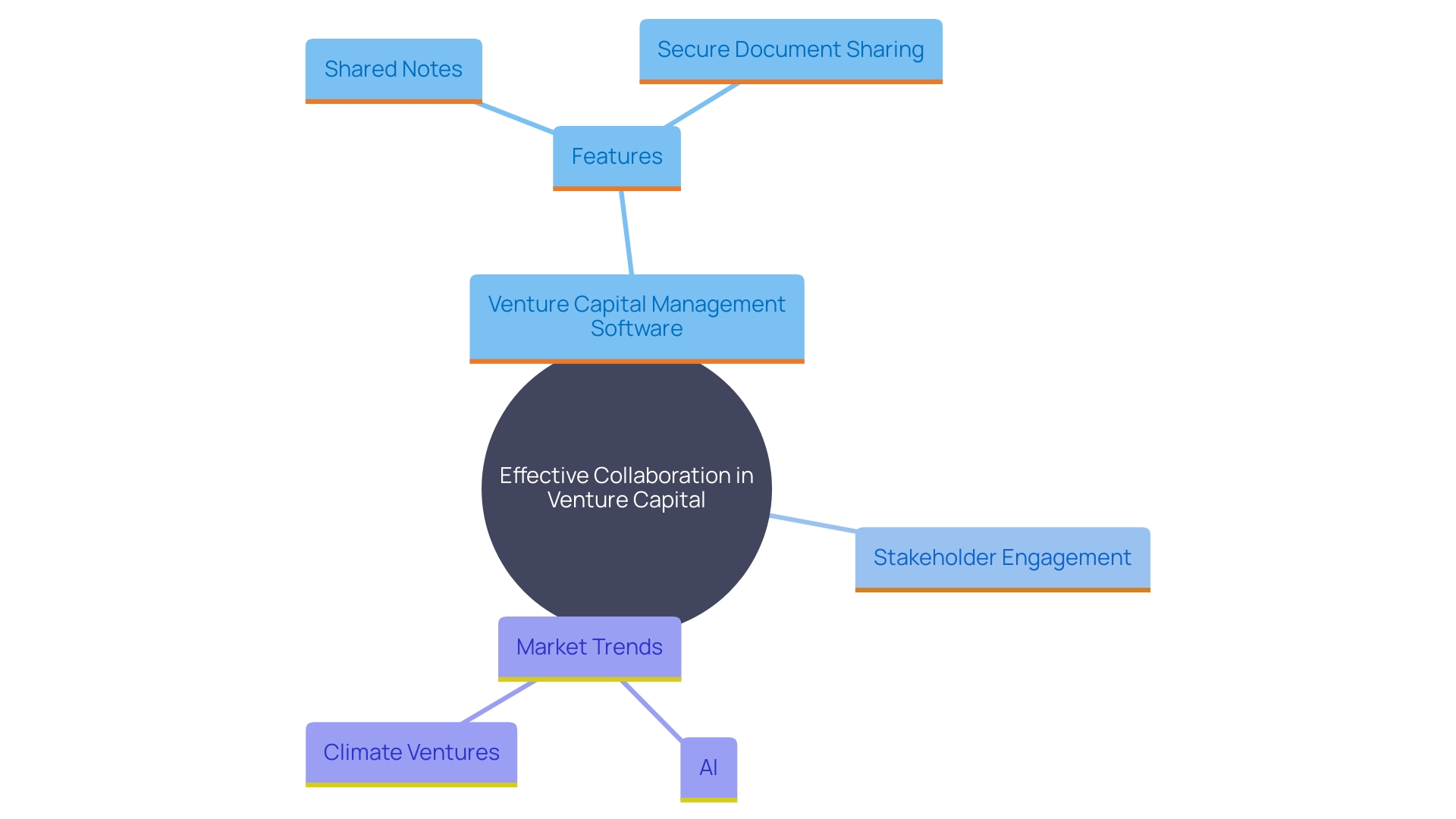
Ensuring Compliance and Data Security
Navigating the intricate web of industry regulations is a critical responsibility for venture capital companies, and non-compliance is simply not an option. Modern Venture Capital Management Software rises to this challenge by incorporating comprehensive compliance tracking and top-tier data security measures. These platforms boast features like audit trails, role-based access control, and advanced encryption techniques, ensuring your organization not only meets legal standards but also safeguards sensitive client information against potential breaches.
As highlighted by industry experts, the rapidly evolving regulatory landscape and technological advancements demand robust solutions. The cybersecurity industry, a pivotal component of our modern digital environment, reflects this urgency with only 4% of organizations confident in their security measures. The global cybersecurity workforce, comprising around 4.7 million professionals, underscores the scale and importance of protecting digital assets.
By integrating these sophisticated security elements, Venture Capital Management Software offers a safe basis for companies to function within legal boundaries while safeguarding against constantly changing cyber risks. This alignment with regulatory requirements and technological innovation not only ensures compliance but also enhances trust and reliability in client relationships.
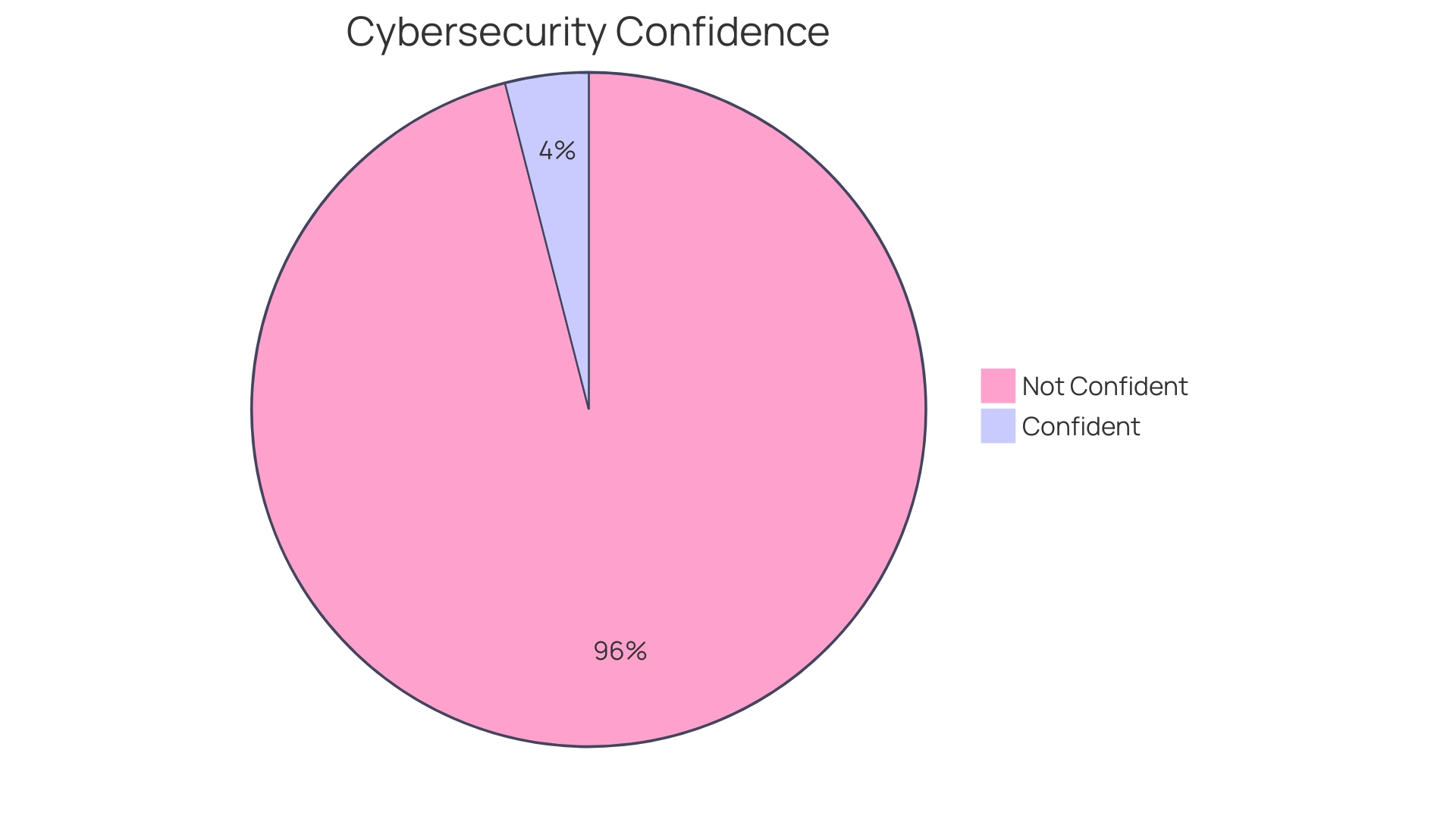
Examples of Top Venture Capital Management Software Solutions
In the dynamic venture capital landscape, a few software solutions have emerged as essential tools for companies aiming to streamline their operations. Leading platforms such as Affinity, Carta, and PitchBook offer a suite of features tailored to meet the specific needs of venture capitalists. Affinity excels in relationship intelligence and deal sourcing, allowing organizations to access extensive networks and discover promising opportunities. Carta simplifies equity management and cap table maintenance, making it a preferred option for many companies. PitchBook stands out with its robust data analytics and market intelligence capabilities, providing comprehensive insights into market trends and investment opportunities.
To make the most informed decision, it’s crucial to assess these platforms based on your organization’s unique requirements. For instance, Jeron Paul, a seasoned entrepreneur and founder of Spiff, highlights the importance of identifying and addressing specific pain points within an organization. Much like Spiff’s success in automating commission calculations to reduce errors and increase satisfaction, selecting the right VC software can drive significant operational improvements.
Investigating case studies and user testimonials can provide valuable insights into how these solutions have propelled success for other businesses. As noted by David Teten, understanding your peers and competitors and how you differentiate yourself is key to thriving in this competitive space. The journey of AI, from its conceptual inception to its current state, underscores the transformative potential of innovative technology in venture capital.
Ultimately, the goal is to harness these tools to enhance your company’s capabilities, whether it’s through improved deal sourcing, efficient portfolio management, or insightful market analysis. By staying informed and leveraging the right software solutions, venture capital firms can navigate the complexities of the industry and achieve sustained success.
Conclusion
In the rapidly evolving venture capital landscape, the adoption of Venture Capital Management Software stands as a crucial differentiator for firms striving for success. By streamlining deal flow tracking, enhancing relationship management, and providing real-time performance analytics, these tools empower investment teams to focus on strategic decisions rather than getting bogged down by routine tasks. The efficiency gains and transparency offered by such software not only optimize resource allocation but also drive higher returns, ensuring firms remain competitive in a fast-paced environment.
Selecting the right software is paramount. It involves a deep understanding of a firm’s unique needs, from portfolio diversity to workflow preferences. Engaging stakeholders early in the decision-making process fosters collaboration and ensures that the chosen solution aligns with strategic goals.
Features such as real-time data analytics, robust reporting tools, and seamless integration capabilities are essential for maximizing operational effectiveness and compliance with industry regulations.
Moreover, harnessing automation and project management tools enhances collaboration and communication among team members and external partners. By fostering an environment of transparency and alignment, firms can navigate market fluctuations more effectively. The importance of data security and compliance cannot be overstated; modern software solutions provide comprehensive safeguards, ensuring both legal adherence and the protection of sensitive information.
Ultimately, the transformative power of Venture Capital Management Software lies in its ability to equip firms with the tools necessary for informed decision-making and agile responses to market dynamics. By leveraging these advanced solutions, venture capital firms can not only streamline operations but also unlock new opportunities for growth and success in an increasingly competitive landscape.
